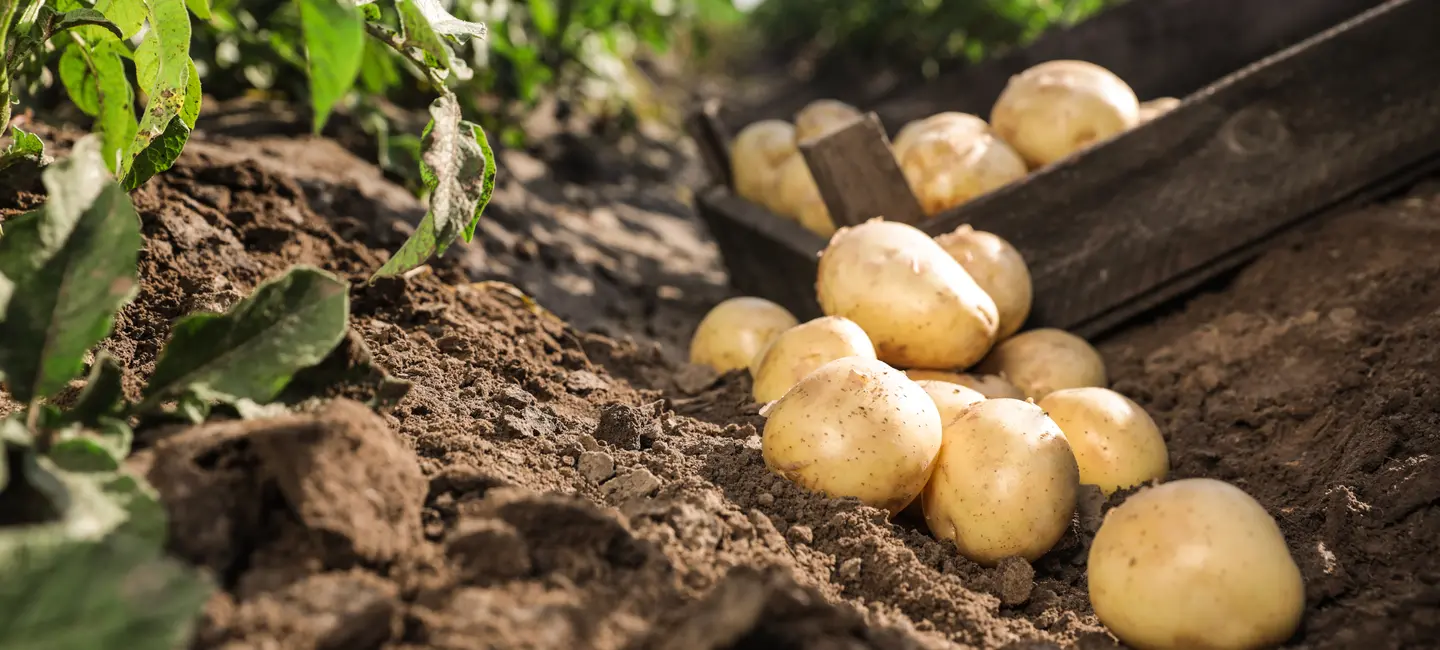
Potato is a plant. The fleshy part of the root (potato) is commonly eaten as a vegetable. Potato is also used to make medicine.
People use potatoes for diabetes, heart disease, high blood pressure, indigestion (dyspepsia), and other conditions, but there is no good scientific evidence to support these uses.
In foods, potato is eaten, used as a source of starch, and fermented into alcohol.
Is It Effective?
NatMed Pro rates effectiveness based on scientific evidence according to the following scale: Effective, Likely Effective, Possibly Effective, Possibly Ineffective, Likely Ineffective, Ineffective, and Insufficient Evidence to Rate.
- Cancer. Eating potatoes does not appear to prevent death due to cancer.
- Colon cancer, rectal cancer. Eating potatoes does not appear to prevent colon or rectal cancer.
- Heart attack. Eating potatoes does not appear to prevent heart attacks.
- Death from any cause. Eating potatoes does not appear to prevent death from any cause.
- Stroke. Eating potatoes does not appear to prevent stroke.
- Heart disease. Early research shows that eating purple potatoes can reduce the stiffness of arteries, but doesn't seem to improve other risk factors for heart disease. Also, population studies have found that eating potatoes does not prevent heart disease.
- Indigestion (dyspepsia). Early research shows that drinking potato juice might help to improve feelings of indigestion in some people.
- High blood pressure. Early research shows that eating small purple potatoes might reduce blood pressure levels by a small amount.
- Boils.
- Burns.
- Infections.
- Obesity.
- Osteoarthritis.
- Other conditions.
More evidence is needed to rate the effectiveness of potato for these uses.
Is it Safe?
Potatoes might limit appetite so people can lose weight. A chemical in the potato peel might also prevent bacteria from attaching to cells. Potatoes are a source of vitamin C, iron, riboflavin, potassium, and carbohydrates.
When taken by mouth: It is LIKELY SAFE to eat unblemished, ripe potatoes as food. It is POSSIBLY SAFE to take unblemished, ripe potatoes, potato juice, or potato extracts as medicine. Eating fried potatoes might cause weight gain. Drinking potato juice can cause heartburn, bloating, and diarrhea.
It is LIKELY UNSAFE to eat damaged potatoes, green potatoes, and sprouts. These can contain poisonous chemicals that cannot be destroyed by cooking. These poisonous chemicals can cause sweating, headache, flushing, nausea, vomiting, diarrhea, stomach pain, thirst, restlessness, and even death.
When applied to the skin: There isn't enough reliable information to know if potato is safe or what the side effects might be.
Special Precautions & Warnings:
Pregnancy and breast-feeding: It is LIKELY SAFE to eat unblemished, ripe potatoes when pregnant or breast-feeding. But there isn't enough reliable information to know if the larger amounts used as medicine are safe. Stay on the safe side and stick to food amounts.
Medications for dissolving blood clots (Thrombolytic Drugs)
Interaction Rating=Moderate Be cautious with this combination.
Potatoes contain a chemical that decreases blood clotting. Taking large amounts of potato with medications used for dissolving blood clots might increase the chance of bleeding and bruising.
Some medications used for dissolving blood clots include alteplase (Activase), anistreplase (Eminase), reteplase (Retavase), streptokinase (Streptase), and urokinase (Abbokinase).
Succinylcholine
Interaction Rating=Moderate Be cautious with this combination.
Succinylcholine is a medication that is sometimes used during surgery. Eating potatoes the night before surgery can cause succinylcholine to last longer. This might slow down recovery from surgery.
There are no known interactions with herbs and supplements.
There are no known interactions with foods.
The appropriate dose of potato depends on several factors such as the user's age, health, and several other conditions. At this time there is not enough scientific information to determine an appropriate range of doses for potato. Keep in mind that natural products are not always necessarily safe and dosages can be important. Be sure to follow relevant directions on product labels and consult your pharmacist or physician or other healthcare professional before using.
Irish Potato, Ja Ying Ye, Papa, Patatas, Patate, Patate Irlandaise, Pomme de Terre, Pomme de Terre Blanche, Pomme de Terre Irlandaise, Purple Potato, Solani Tuberosi Tuber Recens, Solanum tuberosum, White Potato.
Information on this website is for informational use only and is not intended to replace professional medical advice, diagnosis, or treatment. While evidence-based, it is not guaranteed to be error-free and is not intended to meet any particular user’s needs or requirements or to cover all possible uses, safety concerns, interactions, outcomes, or adverse effects. Always check with your doctor or other medical professional before making healthcare decisions (including taking any medication) and do not delay or disregard seeking medical advice or treatment based on any information displayed on this website.
© TRC Healthcare 2024. All rights reserved. Use and/or distribution is permitted only pursuant to a valid license or other permission from TRC Healthcare.
